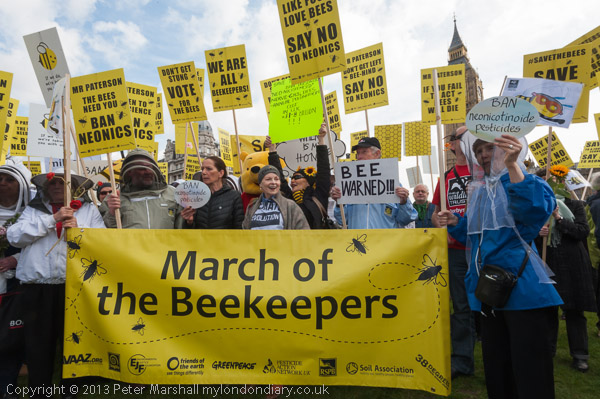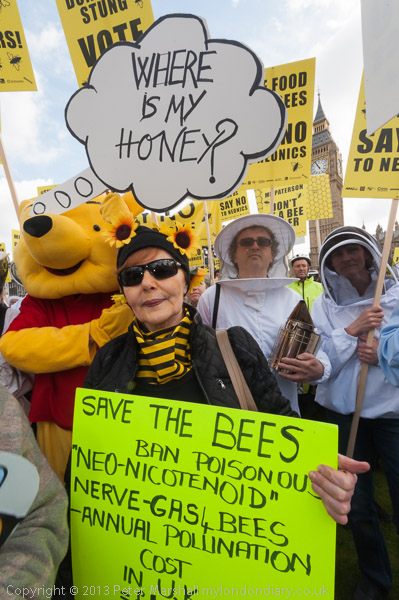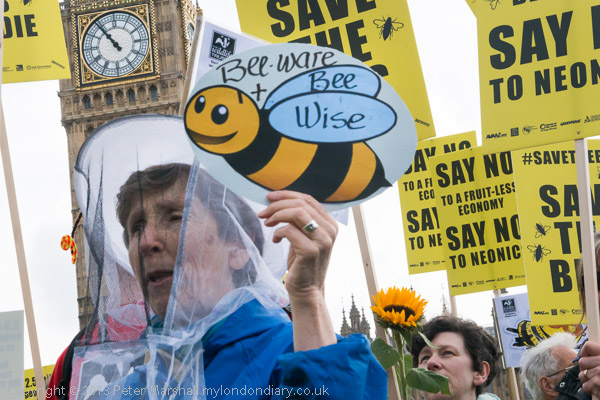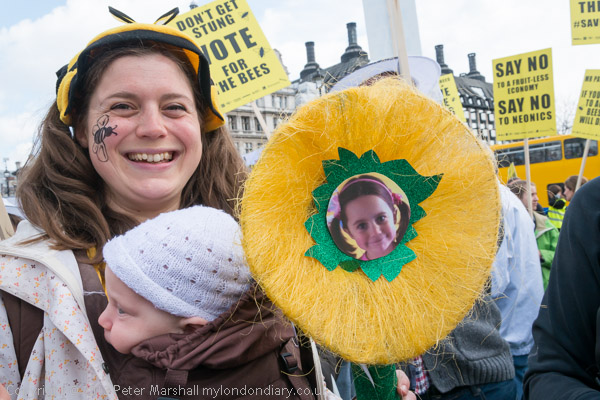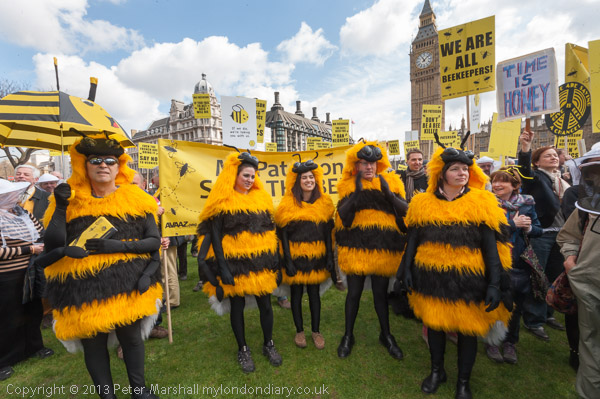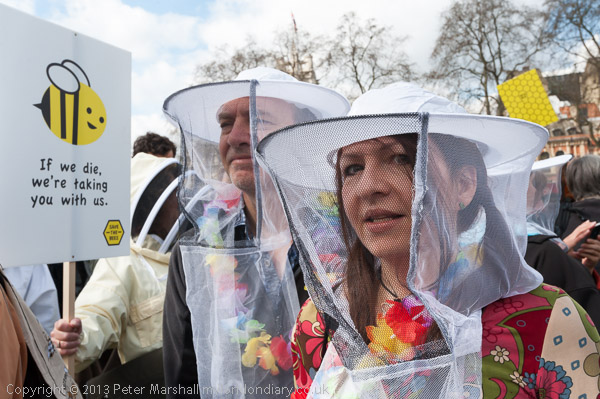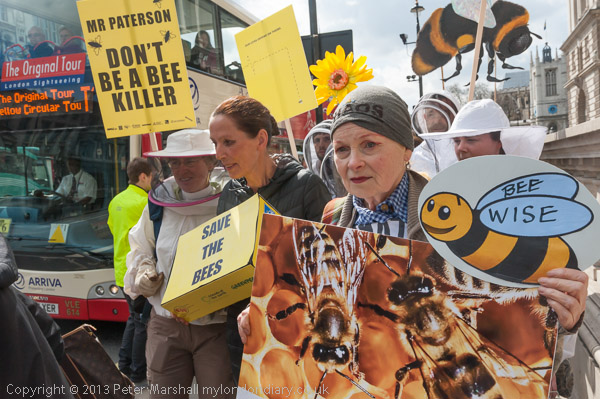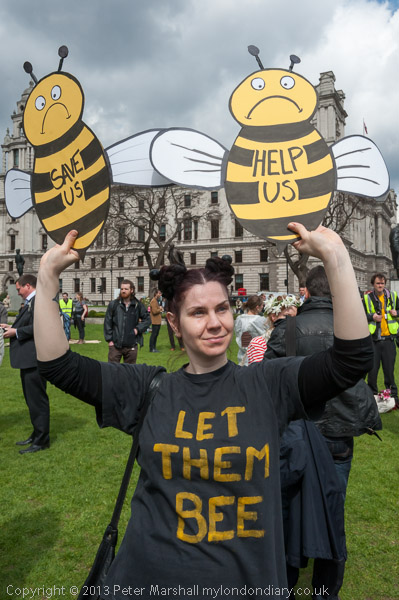March for Clean Water: On Sunday 3rd November 2024 I joined thousands of marchers gathering at Vauxhall overlooking the River Thames for a march demanding urgent action to end the pollution of our rivers and sea.

Much of this pollution is by illegal discharges of sewage by the privatised water companies who have failed to make the investments needed since the regional water authories were sold off to private companies in 1989.

Opinion polls then showed that just under 80% of the UK population were against water privatisation back then, and now over 80% are in favour of bringing them back into public ownership.
Back in 1884, Joseph Chamberlain got it right when he argued “It is difficult, if not impossible to combine the citizens’ rights and interests and the private enterprise’s interests, because the private enterprise aims at its natural and justified objective, the biggest possible profit.”

Private water companies were largely taken over by local authorities by the start of the 20th century and under the 1973 Water Act passed by a Tory government under Edward Heath these were amalgamated into the 10 Water Boards each based on the basin of one of our major rivers, “responsible for water extraction, water supply, sewage treatment and environmental pollution prevention,“

Unfortunately government failed to provide them with the money to properly carry out their functions, and the situation was made much worse after Margaret Thatcher came to power in 1979 when she made it very much harder for the water boards to borrow money for capital projects.
This left the water authorites unable to meet the new EU standards for “river, bathing, coastal, and drinking water quality” which would have required according to Wikipedia “from £24 to £30 billion.”

In light of this, the Conservatives went ahead with privatisation despite the huge public opinion against it. It was hardly a sale, more a getting rid of their liabilities at a token price of £7.6 billion, at the same time taking over the existing debts of £5 billion and gifting the companies a present of £1.5 billion. So the sale only raised £1.1 billion.

Privatisation made England & Wales the only countries in the world to have “a fully privatised water and sewage disposal system.” Something we have been both paying for and suffering from, SInce privatisation water prices have risen by 40% above inflation and in 2017 “research by the University of Greenwich suggested that consumers in England were paying £2.3 billion more every year for their water and sewerage bills than they would if the water companies had remained under state ownership.”

And while we have paid more, the shareholders of at least some of those water companies have done very well out of it – as have many of the top managers who have got huge bonuses despite the many failings of the companies they have run.
Since privatisation investment in the water industry has decreased by around 15% and the companies have built up debts of over £60 billion – rather less than their payouts to shareholders of £78 billion. Huge amounts of treated water is now lost through leaks as our water systems have not been properly maintained and expanded to meet new demand.

And sewage. More and more untreated raw sewage has been dumped in our rivers. What was supposed only to happen when unusual rainfall overwhelmed the sewers now appears to have become a normal occurence in some areas. We should have been investing in increasing separation between drainage and sewage, particularly in new developments but nothing has been done.
We are still largely working with a Victorian system of drainage with a hugely increased population, installed when few homes had baths, washing machines and showers were unheard of and far fewer homes had even one flushing toilet. Demand for water has increased greatly per person.

The march in London on 3rd November was organised by River Action, “an environmental charity on a mission to rescue Britain’s rivers from the deluge of pollution that has left the majority of our waterways in a severely degraded ecological condition” and it reflected this, backed by a long list of other organisations.
Although sewage outflows are the major source of this, agricultural wastes particularly from intensive animal farming are a huge source of pollution in our rural areas and there are still some other industries which pollute our rivers.

We need to bring the water companies under public control and also reform or replace Ofwat and the Environment Agency which have clearly failed in their roles.
You can see more pictures from the march in my album March for Clean Water.
Flickr – Facebook – My London Diary – Hull Photos – Lea Valley – Paris
London’s Industrial Heritage – London Photos
All photographs on this page are copyright © Peter Marshall.
Contact me to buy prints or licence to reproduce.
